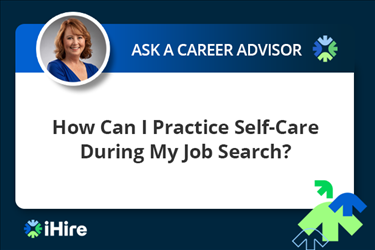- Job Seeker Resources
- |
- Last Updated: February 07, 2024

9 Tips for Applying When You're Overqualified for a Job
Finding a job sometimes means applying for roles that seem beneath your experience level. Maybe you're returning to work after a break, switching careers, or just exploring new avenues. Regardless, applying when you're overqualified for a job isn't as straightforward as it seems. It's about more than just sending in your resume. It's about creating a story showcasing your skills without spooking hiring managers.
This guide will dive into how to apply for these jobs. We'll cover tweaking your resume to strike the right chord, talk about how to tackle those tricky interview questions about your overqualification, and give advice on avoiding missteps that lead to a quick rejection. Finally, we'll show you how to use your experience as a strength, not a weakness.
What Does Overqualified Mean?
What exactly does it mean that you're overqualified for a job? This means you have more skills, experience, or qualifications than the position requires. It's like having a wealth of experience and knowledge when the job calls for a smaller toolkit. An overqualified candidate often raises concerns for potential employers. Hiring managers worry that you might get bored, seek higher pay, or soon quit for another opportunity.
How to Respond to Being Overqualified for a Job
Applying when you're overqualified for the job you're eyeing is a challenge. It demands finesse in presenting your qualifications without overwhelming potential employers. Let's dig into some strategies to use during the application and interview process that will help make your experience shine without casting shadows on your chance of landing the job.
1. Customize Your Resume Strategically
Before applying, consider reworking your resume. You should focus on the skills and experiences most relevant to the job in question. Point out your achievements that directly relate to the position. At the same time, you can downplay advanced roles that might make the hiring manager reject you, but be careful not to be misleading.
2. Create a Purposeful Cover Letter
Your cover letter is a chance to explain why you're interested in the particular job despite your overqualification. Use your cover letter to express genuine enthusiasm for the job and how it aligns with your current career goals. You can also show a desire for a fresh challenge or an interest in contributing your expertise to the team.

3. Balance Confidence With Humility
You should, of course, highlight your job skills. But you should also take care not to seem authoritative or dismissive of the job's requirements. Find a middle ground. Show confidence in your skills while expressing a willingness to learn and grow within the role.
4. Address Overqualification Proactively During Interviews
Prepare for the interviewer to ask questions about your overqualification. Come up with responses ahead of time that focus on how your experience can help the company. Be sure to emphasize your excitement for the role and your commitment to making a meaningful contribution to the company without aiming for immediate career advancement.
5. Emphasize Your Desire for Career Stability
Stress your desire for job stability and a long-term commitment to the specific job (and company) in question. Reassure the employer that you're looking for a role in which you can make a real impact.
6. Show Adaptability and Flexibility
It helps to give examples during interviews that spotlight your ability to adapt to different job roles and industries. Bring up times when you've successfully transitioned and flourished in new environments.
7. Align With Company Values
Before your interview, do some research to learn about the company's values and mission. Tailor your interview responses to show how your personal values line up with the organization's goals. This allows you to focus on something other than your overqualification.
Find the Job That's Right for You
Create your free account and get personalized job matches sent your inbox - every day!

Job Seeker Sign In
We Value Your Privacy
8. Network With Purpose
By networking, you can create connections with other employees in the company or within the industry. Personal connections can sometimes override a hiring manager's concerns about your overqualification by giving them insight into how you will fit into the organization.
9. Stay Open to Learning and Growth
Show the hiring manager that you are eager to learn new job skills or take on additional responsibilities that your past roles might not necessarily reflect. This will show them that you're willing to evolve within the position.
Being Overqualified for a Job Isn't the End of the World
Landing roles for which you're overqualified might seem like trying to fit the proverbial square peg into a round hole. However, by carefully navigating the strategies we've talked about, you can present yourself as a valuable asset to the company without letting your overqualification hurt your chances of getting the job you want. You can indeed show off your job skills without ringing alarm bells for potential employers by tailoring your resume, creating a cover letter that hits the mark, and answering those tough interview questions about your overqualification. Steering clear of rejection and showcasing your experience as an asset is all part of the game plan.
For more guidance, check out iHire's Resource Center for job seekers, where you can find help on protecting yourself from ageism during your job search, making a career change, and more.
Sign In or Register to access all articles and insider tips for help in your job search.
Search for iHire Jobs
RELATED JOBS
RELATED RESOURCES
Find the Right Job Faster
- Get personalized job matches sent to your inbox every day
- Connect directly with employers before your competition
- Advance your career with expert advice on interviewing, salary negotiation, and more
We value your privacy




